Performing Arts Sustainability - Artistic, Financial, Social, and Ecological Dimensions
"Framing Performing Arts Enterprises as Cultural Commons allows a broader understanding of their full complexities, their benefits to societies, and the responsibilities we all have to secure their sustainability".
Maestro Diego Barbosa-Vasquez (DM, MM, BM)
Key Words: Performing Arts, Opera, Orchestra, Ballet, Artistic, Financial, Social, Economic, Sustainability, Music, Artistic, Pedagogic, Administrative, Business, Community, Models, Polycentric, Governance, Cultural Commons, Entrepreneurship, Leadership, Creation, Conducting, Directing, Singing, Orchestra, Stage, Community, DEIB, Diversity, Equity, Identity, Belonging
The MAP and ABC of Performing Arts Sustainability
MAP (Music, Artistic, Pedagogic) and ABC (Administrative, Business, and Community)
Scroll-down Map for the Blog:
Research Description
Research in process since 2018 by Barbosa-Vásquez/Academic.
***Started as Opera Sustainability and expanded into
Performing Arts Sustainability (Opera, Orchestra, and Ballet)**
Supported and Awarded by

**The primary focus of Maestro Barbosa-Vásquez is Conducting
Operas, Ballets and Symphonic Repertoire.**
Don't forget to check his calendar to don't miss the opportunities to see him conducting: https://www.barbosavasquez.com/calendar
Para la versión en español haga Clic Aquí
More information about the research

**Started as Opera Sustainability and expanded into
Performing Arts Sustainability (Opera, Orchestra, and Ballet)**
Performing Arts Enterprises should be available for all people. However, its artistic development has not always been correlated with clear updated financial and community sustainability goals over time. This fact, for example affects the community's relationship with the Opera as an art and as an industry, relegating the Opera to less than 2.2.% of society (NEA 2017 study).
The proposed solution starts with clarifying how societies interact with and around art. In that sense, framing Performing Arts Enterprises as Cultural Commons allows a broader understanding of their full complexities, their benefits to societies, and the responsibilities we all have to secure their sustainability. This framing encourages a deep understanding of the full range of Actors'/Stakeholders' interactions around the Artistic Enterprises. From Singers, Conductors, Stage Managers, etc., to the communities around, sponsors, managers, opera, orchestras, and ballet companies, unions, publishers, composers, etc. Similarly, based on a Polycentric Governance framework, the research not only focuses on understanding who are the Actors/Stakeholders but also which are the best possible and sustainable relationships between them within their local, regional, national, and international fields.
Furthermore, moving to practical actions in the actual field, the present research also identifies the challenges and goals that need to be addressed in the creation and/or leadership of Sustainable Performing Arts enterprises. This is done by the creation of sustainable, adaptable, and interconnected governance and action models: (MAP) Music, Artistic, Pedagogic, and (ABC) Administrative, Business, and Community. These models clarify the full range of actions that have to be taken at all levels in the organization and with all stakeholders to secure sustainable enterprises. Actions plans that can be adapted under the unique specificities of the cities, opera, orchestra, and ballet companies, universities, or other entities interested in creating viable and sustainable artistic practices. The results are stronger communities with strengthened artistic enterprises that enjoy healthy and sustainable relationships between all Actors/Stakeholders.
Short list of Tangible Products of the Performing Arts Sustainability Research!
For a full list please contact Maestro Barbosa-Vásquez Here!
Mastering Your PreScreen Recording: Comprehensive Guide to Succeeding in Your Path to Universities, Competitions, and Professional Careers in the Performing Arts
Nov 2024
This is the first in a series of publications by the Performing Arts Laboratory, specially designed to #Empower a wide range of #Stakeholders across various sectors where the Performing Arts field suffers from asymmetric information and stakeholder disconnection. These publications aim to foster a more sustainable and healthier Performing Arts field for all.
Mastering Your PreScreen Recording is packed with essential strategies and best practices for creating standout pre-screen recording materials, tailored specifically for applications to university programs (undergraduate and graduate), pre-professional programs, competitions, and professional positions in the Performing Arts. Drawing on over two decades of international performance experience and more than 10 years of cutting-edge research across 150+ university programs, competitions, and performing arts organizations worldwide, Maestro Barbosa-Vásquez (Doctor of Music and expert in Performing Arts Sustainability) provides step-by-step guidance to help artists showcase their talents in the best possible light.
The book also provides readers with 21 pro tips, 13 QR codes linking to additional multimedia and advanced research, exclusive field stories, and online access to state-of-the-art pre-screen preparation materials. This book is a comprehensive toolbox designed to equip you with everything you need to develop outstanding pre-screen materials, bringing you closer to securing your desired position or program. Whether you're applying to prestigious schools, entering competitions, or pursuing professional opportunities, this guide will help you craft high-quality recordings that captivate juries and set you apart from other candidates.
More information at: https://www.performingartslab.com/press
Available in Print ( ISBN: 979-8-9917108-0-0 ) and Ebook ( ISBN: 979-8-9917108-1-7 ).
Doctoral Dissertation: "Models for the Creation and Leadership of Sustainable Opera Camps" March 2023
For Doctor Degree in Music in Opera, Orchestra, and Ballet Conducting at Jacobs School of Music at Indiana University. Doctoral Minors in Music Theory and Arts Administration.
Using the Framing of Opera and Arts as Cultural Commons, this Doctoral Dissertation develops an in-depth understanding of the full complexities, benefits, and responsibilities of every actor/stakeholder of the Opera enterprise. That understanding allows the exploration of one possibility to solve the sustainability problem that Opera is facing by creating Multilevel Opera Camps. These are experiences where all Opera stakeholders (communities, students, and professionals) can interact and be part of the Opera experience in a sustainable way. Specifically, through in-depth analysis of the concept of Opera Camps and multiple Opera programs around the globe (Chapter 1), Arts Administration Literature, and Polycentric and Cultural Commons Governance frameworks; the author creates the MAP Models (Music, Artistic, and Pedagogic governing models) for Opera Camps (Chapter 2). Similarly, the ABC Models (Administrative, Business, and Community Models) are addressed by the Author in other publications. The MAP and ABC Models identify the challenges and goals that need to be addressed in the creation and leadership of these Opera Camps, defining the correlated models that can be adapted under the unique specificities of the cities, opera companies, universities, or other entities interested in creating a viable and sustainable Opera experience.
Access to the Doctoral Dissertation Academic-Text: Click here!
Access to accessible formats of the Doctoral Dissertation: Soon here!
The Community Opera Scores
On 2021 this research had one of the first tangible results with the creation of the Community Opera Scores. A remarkable development in the arts that will be allowing Communities, Students, and Professionals to do Opera all together side by side: An innovation that also was awarded by the prestigious Jacobs School of Music and Indiana University's leading Kelley School of Business in their Innovation 2021 contest.
*More information about this Community Opera Scores at: https://www.barbosavasquez.com/single-post/barbosa-v%C3%A1squez-opera-won-an-innovation-competition-in-music-industry-and-business
Performing Arts Laboratory
Based on in-depth international practical research and award-winning multidisciplinary work, the Performing Arts Laboratory (PAL) develop sustainable and profitable productions, comprehensive services for organizations and individuals, advanced products and courses, and state-of-the-art resources in easily digestible formats. All of these efforts are designed to serve and enhance the Performing Arts field (Opera, Orchestra, and Ballet). Through a multidisciplinary approach—collaborating with fields such as economics, business, arts, anthropology, social sciences, arts administration, political economy, macro and microeconomics, and entrepreneurship—we assist organizations, artists, and societies at local, regional, national, and international levels in understanding and leveraging the keys to achieving sustainability in the performing arts.
Every stakeholder in the performing arts is crucial. The Performing Arts Laboratory (PAL) support artists and arts administrators in building stronger and healthier careers, help organizations adopt more sustainable artistic practices, business structures, and services, and serve communities, whether local or global, to benefit from increased collaboration and engagement within the Performing Arts experiences. Ultimately, PAL aim to develop solutions that contribute to a more sustainable Performing Arts field benefiting the full spectrum of stakeholders involved.
More information at: www.PerformingArtsLab.com
Opera Sustainability Podcast
On Feb 2022, the research has launched the Ostrom Workshop Opera Sustainability Podcast. A place where worldwide Opera performers and scholars from multiple disciplines work together to better understand the challenges and possible solutions for the Opera Sustainability at local, regional, national, and international levels. A place to share with the leading international opera key actors and stakeholders to understand the best possible artistic, musical, pedagogic, administrative, community, and business models that can secure the sustainability for the Opera field. To listen to the episodes Click Here
Opera Camps Services - by SustainableOperaSolutions™
An remarkable experience where Communities (kids to older adults), Students (UnderGrad, and Grad) and professionals (from different disciplines), and all produce, perform, and experience Opera all together side by side. Done in alliance with SustainableOperaSolutions™, this is a service where Opera companies, Orchestras, Performing Organizations, Universities, Cities, Schools, and in general different organizations interested in offer sustainable artistic experiences to their stakeholders, can make this a reality. Interested organizations can just contact the Company and they take care of all the necessary steps to make this Camp a reality on the specific location adapting the MAP (Music, Artistic, and Pedagogic) and ABC (Administrative, Business, and Community) Models for the needs of the specific communities and organizations hosting the Opera Camp Experiences. For more info please contact: Maestro Barbosa-Vasquez Here!
The Orchestras' Artistic Constituency with Maestro Diego Barbosa-Vásquez & Sonja Thoms
July 2023
An interesting conversation with Maestro Barbosa-Vásquez & by Sonja Thoms (Founder of Orchestra Careers and Executive Director - Wheeling Symphony Orchestra) where the Artistic Constituency of the Orchestra Enterprise is analyzed in depth. From, understanding the role of the Artistic Constituency, the relationships, the challenges, and the expected future for the field, the conversation allows internal and external stakeholders to understand the Artistic dimension of the Orchestra enterprise in a welcoming and relaxing environment.
Full video: Click Here
Opera Sustainability: Through Multilevel-Apprenticeship Programs at Opera Companies
March 2022
Opera is a cultural common that benefits humanity at multiple levels. However, its practice has become almost inaccessible to certain populations making the Opera audiences less connected to the art form every day. The Opera is in need of sustainable solutions for its survival. To understand the challenges and possible solutions, the present research is divided into three main components. First, the paper analyzes and describes Opera as an art and as an industry, clarifying its actors/stakeholders, some of their interactions, and the current business model of the Opera. Second, the text describes the problems of the current business and governance models and the hypothesis of the death spiral of the current Opera field. Third, the research explains the solutions that the multilevel-apprenticeship programs could offer to the Opera field and the possibility of implementing them in multiple local arenas with a multidisciplinary approach that involves full Opera actors. Furthermore, the paper enumerates the next steps that could be followed to continue the study in Opera sustainability. To see the summary video of the paper and discussion at the Ostrom Workshop Research Series please visit: Click Here
See the Paper in Process here: Click Here
Multilevel Music Construction at Different Renowned Operas
Dec 2021
Writing an Opera from scratch is a very complex and time-consuming endeavor, even if only the music element is considered. Multiple analyses have been done from the music theory field to help understand this process, identifying how the music is constructed. However, an element that has not been analyzed deeply is the multilevel singers’ skills influencing the music. The concept of having singers of different levels as the mediums to represent a musical idea and how these multilevel skills influence the way music is written. The present research analyzes the roles of four renowned operas (Il barbiere di Siviglia, La bohème, Falstaff, and Die Zauberflöte) and its level characteristics. Then, these levels are contrasted with the music written for them proving that the multilevel singer's setting influences the composer at the moment of write music for opera. This research looks to inspire other musicians to explore more into how the practical issues of performing and premiering Opera and to intrigue arts administrators to re-think the governance of the opera field allowing a broader spectrum of levels involved in a production. For more information: Click here
Necessary changes in Non-Profit Fundraising logics and Goal Metrics to fulfill current society needs
May 2023
Fundraising is way much more complex than only money focused, and it should not have the dollar amount as its unique goal metric because, as explained before, it is misleading and creates a dangerous threats to the organization's sustainability. Fundraising goals metrics must embrace the full complexities of philanthropy and non-profit activities to enrich societies and detach itself from plutocracy antiquate models of governance. A fundamental change to secure non-profits social and economic sustainability in the current world.
Full Blog post: Click Here!
The Future of the Orchestra Field by Framing Orchestra Enterprises as Cultural Commons
June 2023 // As Panelist of the prestigious Closing Plenary of the League of American Orchestras 2023 National Conference
Because of the urgent sustainability issues of the orchestra enterprises worldwide, is crucial for our field to start embracing the Orchestra Enterprises as a Cultural Commons. A way to see common shared resources and experiences, in this case the orchestra enterprise, as endeavors in which every single stakeholder could benefit from it as well as has clearly defined responsibilities towards its sustainability. Based on multidisciplinary awarded international research this thinking will allow us to have a stronger understanding of the full orchestra field complexities, their full benefits to societies, and more importantly define the sustainable and complete matrix of the responsibilities that we all have as internal and external actors to secure the field sustainability. This way of thinking about the orchestra enterprises allow us to target at least four very important things. First, it makes visible the core systems (in each orchestra, as well as in the whole field) that are not allowing us to move in the directions we want to move, and more importantly clarifies the specific strategies we can use to solve them. Second, it clarifies the differences between honoring traditions and the keeping of unsustainable models. Third, it allows the understanding that the Sustainability in our field is achieved by clever and strategic collaboration of ALL STAKEHOLDERS (internal and external). And fouth, it allows strong full stakeholders accountability no matter their level.
Full Blog post: Click Here!
Multidisciplinary Team/Advisors/Mentors
Principal Investigator
Diego Barbosa-Vásquez, Founder & General Director, Performing Arts Laboratory / JSoM, IU / Colombia
Interdisciplinary Team/Advisors/Mentors/Allies:
Opera, Music & Artistic Field
Peter Volpe, Professor of Music (Voice) / JSoM, IU / USA
Megan Starnes, Director of Student Leadership Programs / O’Neil, IU
Walter Huff, Professor of Music (Opera Choral Conducting) / JSoM, IU
Arthur Fagen, Chair of Department of Orchestral Conducting / JSoM, IU / USA
Michael Shell, Resident Stage Director, IU Opera and Ballet Theater / JSoM, IU
Marzio Conti, Opera, Orchestra Conductor, Music Professor / Istituto Superiore di Musica "L. Boccherini" / Lucca, Italy
Karen Gahl-Mills, Director of Arts Administration Programs; Senior Advisor, Center for Cultural Affairs / O’Neil, IU
Ostrom Workshop
Scott Shackelford, Executive Director, Ostrom Workshop / Business Law and Ethics - KSB, IU
Michael McGinnis, Senior Research Fellow, Ostrom Workshop / Political Science – COAS, IU
Daniel H. Cole, Affiliated Faculty Member, Ostrom Workshop / Environmental Law - Maurer, IU
Gustavo Torrens, Director of the Political Economy, Ostrom Workshop / Economics - COAS, IU
Angie Raymond, Director Data Management, Ostrom Workshop / Business Law and Ethics – KSB, IU
Bloomington Community Allies/Partners
Nancy Hutches, Trinity Episcopal Church, Bloomington, IN
Tabitha Cassani, Director of Programs, Boys & Girls Clubs of Bloomington
Tamara Loewenthal, Executive Director, Lotus Education and Arts Foundation
Silvia Panigada, Music and Culture Coordinator, FAR Center for Contemporary Arts
Alex Crowley, Director, Economic & Sustainable Development at City of Bloomington, IN
Holly Warren, Assistant Director for the Arts, Economic & Sustainable Development at City of Bloomington, IN
IU Students for Documentary Project
Robert S Mack, Documentary Co-Producer
Duke Wayne, Director of Photography of Documentary
Alex D'Angelo, Sound Recordist
Performing Arts Sustainability
(Artistic, Financial, Social, and Ecological Dimensions)
by Diego Barbosa-Vásquez/Academic
Organizations that have Collaborated with the Research
Are you interested in become a member and contribute to these
International Opera Sustainability Practical-Research?
Please contact Maestro Barbosa-Vásquez Here!
**The primary focus of Maestro Barbosa-Vásquez is Conducting
Operas, Ballets and Symphonic Repertoire.**
Don't forget to check his calendar to don't miss the opportunities to see him conducting: https://www.barbosavasquez.com/calendar






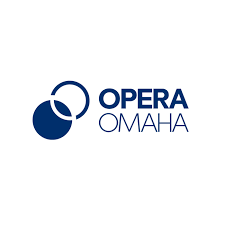







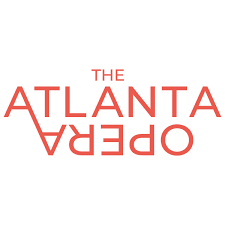

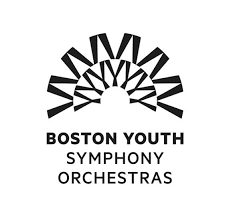













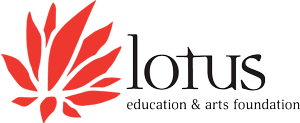









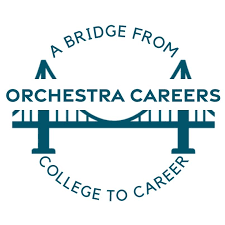








































Comments